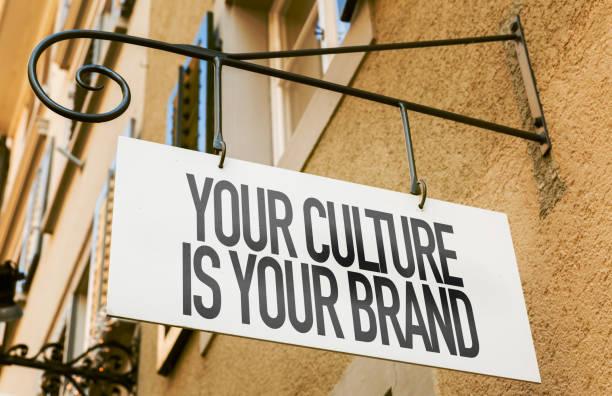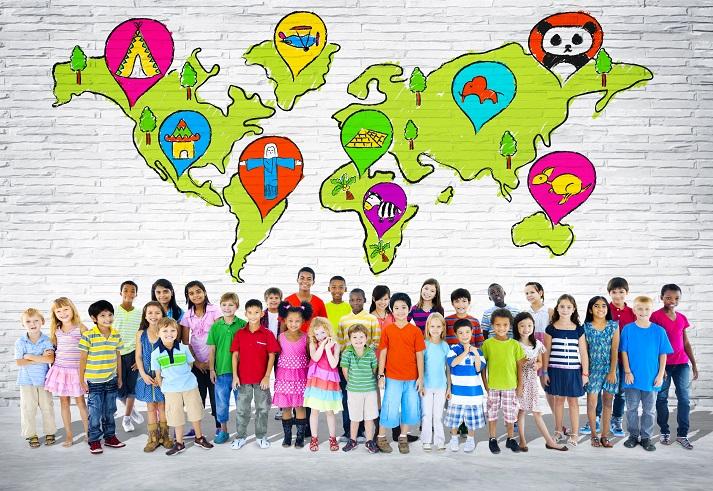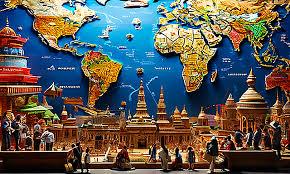Can cultural exchange through globalization lead to the loss of cultural identity? Why or why not?

Cultural exchange through globalization can lead to both the enrichment and the loss of cultural identity, depending on how it is managed and experienced. Here are some reasons why cultural exchange might lead to the loss of cultural identity, as well as arguments for why it might not:
Reasons Cultural Exchange Can Lead to Loss of Cultural Identity
-
Dominance of Global Cultures
- Media and Entertainment: The global dominance of Western media can overshadow local traditions and narratives, leading to homogenization of cultural expressions.
- Consumer Culture: Global brands and consumer goods can replace local products and practices, diminishing the unique aspects of regional cultures.

-
Language Decline
- Global Languages: The widespread use of dominant languages like English can lead to the decline of indigenous languages, resulting in the loss of linguistic heritage and the cultural knowledge embedded within those languages.
-
Cultural Homogenization
- Standardization: Globalization can lead to standardized cultural practices and lifestyles, where unique local customs are replaced by global norms. This can result in a loss of diversity and cultural richness.
-
Economic Pressures
- Commercialization: Traditional practices may be altered or commercialized to appeal to international markets, stripping them of their original meaning and context.
-
Migration and Urbanization
- Cultural Integration: As people move and urbanize, they may adopt the dominant culture of their new environment, potentially leading to the erosion of their original cultural identities.

Reasons Cultural Exchange Might Not Lead to Loss of Cultural Identity
-
Cultural Revival and Preservation
- Awareness and Appreciation: Globalization can increase awareness and appreciation of different cultures, leading to efforts to preserve and revive endangered traditions.
- Technology and Documentation: Digital technology enables the documentation and sharing of cultural practices, helping to preserve them for future generations.
-
Hybridization and Innovation
- Cultural Fusion: Cultural exchange can lead to the creation of new, hybrid cultural forms that enrich rather than replace traditional practices.
- Adaptive Practices: Cultures can adapt and integrate new elements while maintaining their core identities, leading to dynamic and evolving cultural expressions.
-
Economic Empowerment
- Global Markets: Access to global markets can empower local artisans and practitioners to sustain their traditional crafts and practices, providing economic incentives to preserve their cultural heritage.
-
Policy and Advocacy
- Cultural Policies: Governments and organizations can implement policies and programs that protect and promote cultural diversity in the face of globalization.
- Cultural Rights Movements: Advocacy for cultural rights can ensure that minority and indigenous cultures are respected and preserved.
-
Intercultural Dialogue
- Mutual Exchange: Cultural exchange can foster mutual respect and understanding, leading to a more inclusive global culture where diverse identities are celebrated and preserved.

Balancing Cultural Exchange and Identity
- Education and Awareness: Promoting cultural education and awareness can help individuals appreciate and retain their cultural identities while engaging with other cultures.
- Community Initiatives: Local communities can play a crucial role in preserving cultural practices through initiatives that celebrate and sustain their heritage.
- Inclusive Globalization: Striving for a model of globalization that values and protects cultural diversity can mitigate the risks of cultural loss.
Conclusion
Cultural exchange through globalization has the potential to both enrich and challenge cultural identities. While there is a risk of cultural homogenization and loss, proactive efforts to preserve, adapt, and celebrate cultural diversity can ensure that globalization leads to a more interconnected and culturally rich world. The outcome largely depends on how societies manage the balance between embracing global influences and maintaining their unique cultural identities.
AfriPrime App link: FREE to download...
- Questions and Answers
- Opinion
- Motivational and Inspiring Story
- Technology
- Live and Let live
- Focus
- Geopolitics
- Military-Arms/Equipment
- Ασφάλεια
- Economy
- Beasts of Nations
- Machine Tools-The “Mother Industry”
- Art
- Causes
- Crafts
- Dance
- Drinks
- Film/Movie
- Fitness
- Food
- Παιχνίδια
- Gardening
- Health
- Κεντρική Σελίδα
- Literature
- Music
- Networking
- άλλο
- Party
- Religion
- Shopping
- Sports
- Theater
- Health and Wellness
- News
- Culture

